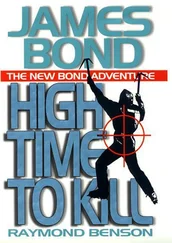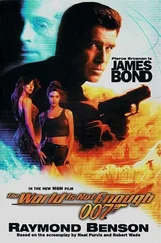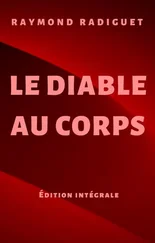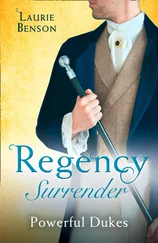Raymond Benson - Doubleshot
Здесь есть возможность читать онлайн «Raymond Benson - Doubleshot» весь текст электронной книги совершенно бесплатно (целиком полную версию без сокращений). В некоторых случаях можно слушать аудио, скачать через торрент в формате fb2 и присутствует краткое содержание. Год выпуска: 2000, ISBN: 2000, Издательство: Jove, Жанр: Старинная литература, на английском языке. Описание произведения, (предисловие) а так же отзывы посетителей доступны на портале библиотеки ЛибКат.
- Название:Doubleshot
- Автор:
- Издательство:Jove
- Жанр:
- Год:2000
- ISBN:9780515130614
- Рейтинг книги:4 / 5. Голосов: 1
-
Избранное:Добавить в избранное
- Отзывы:
-
Ваша оценка:
- 80
- 1
- 2
- 3
- 4
- 5
Doubleshot: краткое содержание, описание и аннотация
Предлагаем к чтению аннотацию, описание, краткое содержание или предисловие (зависит от того, что написал сам автор книги «Doubleshot»). Если вы не нашли необходимую информацию о книге — напишите в комментариях, мы постараемся отыскать её.
Doubleshot — читать онлайн бесплатно полную книгу (весь текст) целиком
Ниже представлен текст книги, разбитый по страницам. Система сохранения места последней прочитанной страницы, позволяет с удобством читать онлайн бесплатно книгу «Doubleshot», без необходимости каждый раз заново искать на чём Вы остановились. Поставьте закладку, и сможете в любой момент перейти на страницу, на которой закончили чтение.
Интервал:
Закладка:
The shoulder holster was still on the chair where he had left it. He put it on and surveyed the scene.
The flat looked like the devil’s workshop.
He glanced at the telephone and considered calling the police.
Not a good idea at this point.
He needed to find out who had done this terrible thing and make sure he could clear his name.
Bond refused to believe that he had done it.
He put on his jacket, opened the door to the flat, and looked into the corridor. All clear. He turned back to the flat and whispered, “I’m sorry, Kimberley,” then shut the door.
As he left the building, the porter watched him suspiciously.
The thought kept nagging at Bond: What if he had done it?
He walked the streets in a daze.
For a moment he thought that someone was following him. He turned quickly, but didn’t see anyone.
Get hold of yourself! He was jumping at shadows.
The obvious thing to do would be to contact Bill Tanner. Bond should tell him everything—about the blackouts, the hallucinations, and Kimberley. On the other hand, if he did that, he would be detained and questioned by the police. He would be in the middle of an inquiry, and would end up being the prime suspect. M would suspend him from duty indefinitely, and he would never get to the bottom of this.
No, even if it was totally imprudent, Bond knew that he had to keep quiet.
Bond was unsure of where to go and what to do. He flagged down a taxi on a main street and decided that his flat was the safest place to go. In the cab, he kept telling himself what he wanted to believe. The Union was responsible.
He had to get closer to them. It was the only way. If he could track down Helena Marksbury’s killers, he would probably also find Kimberley’s murderers. If he could face his enemy, he would come to grips with what was happening to him. It just couldn’t be anything physical. He hadn’t much faith in psychiatry, either, so he was loathe to seek out additional help.
Bond made a vow to beat this himself. The only way to do it was to go after the Union with guns blazing. Leave no stone unturned. Flush them out and smash them like insects.
When he got to his flat, it was nearly dawn. His flight to Africa was looming.
He double-checked the bag he had packed and looked at the message he had left for May. He had written that he would be out of the country for a while. Bond scribbled an additional sentence—that he didn’t know when he’d be back. That was good enough.
He caught another taxi outside and went straight to Heathrow. Using his alias “John Cork,” he went swiftly through Immigration and boarded the Royal Air Maroc flight to Tangier.
As the sun rose on the southern coast of Spain, Royal Gibraltar Police border control officer Captain Brian Berley eyed the group of protestors with understandable apprehension. This was the largest group he had ever seen, and he had been stationed on the border between Spain and Gibraltar for nearly fifteen years. The mob had appeared the previous night in the sleepy town of La Linea, just north of the border. They had arrived in buses and cars, and on bicycles … and had stayed in hotels or camped out in their vehicles. As soon as the sun rose, they were out in force.
Berley picked up the phone and made a call.
“Commissioner, I think the situation down here looks extremely bad. They’re becoming quite noisy, and if they decide to storm the border, we’re outnumbered twenty to one. We need MACA immediately.” MACA stood for Military Assistance to the Civil Authorities.
He was assured that military police were on the way, but that the border should be closed until further notice. Berley issued the instructions to the Immigration officials, who lowered the barriers and told pedestrians and people in cars that there would be no entry into Gibraltar. Besides, the mob had all but blocked the road in and out of the colony.
The hundred or more protestors were bunching up as close as possible to the gates. Many of them were carrying signs that read, in Spanish and English, “Gibraltar Is Spanish, Not British!” Some signs proclaimed, “Espada—Governor of Gibraltar!” While the inhabitants of the British colony were accustomed to protests and demonstrations, having dealt with this kind of thing for centuries, the recent turn of events had them a little worried. The U.K. had been slow in sending reinforcements and, in fact, the decision to do so was being held up for political reasons.
Berley had read the newspaper reports with cynicism. The U.K. Prime Minister was attempting to find a peaceful settlement with Spain. The Madrid government’s official line was that they “disapproved” of Domingo Espada’s actions, but they were making no attempts to curb him. Berley thought that this was merely a public relations ploy and that they were in fact rubbing their hands with glee. If an upstart like Espada could take back Gibraltar without the “approval” of Spain, then the Spanish government wouldn’t be blamed. Seemed pretty simple.
A truck carrying twenty Gibraltar Services Military Police officers drove across the Gibraltar airfield’s runway, which was inconveniently located just south of the border (people entering or leaving the colony had to cross it!), and stopped at the Immigration building. The men, carrying SA-80 5.56mm assault rifles, leaped out of the truck and formed a line at the border. This prompted more shouting and abuse from the protestors, who had by now pushed themselves up as far as they could get to the border.
When the rocks started flying, Berley made another call to his superiors. The Royal Gibraltar Regiment was being dispatched as well.
The security alert at the Governor’s Residence went from “black” to “amber.” The Governor made an urgent call to London, again requesting assistance. Unfortunately he was told that rock-throwing did not constitute a threat of “serious violence” and that NATO’s European Rapid Reaction Force, which was drawn from Allied Command Europe Mobile Force Land (ACE), would not be dispatched. NATO were discussing the situation in Brussels, but these things took time. However, the U.K. was sending the 1st Battalion of the Parachute Regiment based in Aldershot. They were expected to arrive by midday.
The Governor gave the order to secure the airport and allow only the reinforcements from Britain to land. All other traffic in and out of Gibraltar was to cease.
Captain Berley was told to keep calm and stand his ground. Help was on the way, but it wouldn’t arrive until midafternoon.
The mob was becoming ugly. The shouting and insults were increasing by the minute. The police were doing their best to keep cool and not retaliate in kind. The situation was a powder keg, ready to ignite. Rocks broke one of the windows in the Immigration office. Berley wondered if he should employ tear gas in an attempt to disperse the crowd.
Suddenly, a deafening explosion rocked the Immigration building. A fireball engulfed the surrounding area. Chaos erupted as some of the Spanish crowd cheered, while others screamed and ran. Several soldiers had been caught by the blast and were now lying on the pavement, dead or seriously wounded.
Berley ran out of the smoking building and ordered the men to fire warning shots to disperse the crowd. As the guns went off, the Spanish mob thought they were being fired upon.
Several Spaniards pulled their own guns and began to fire at the police.
Berley was horrified. He dropped to the ground, avoiding the gunfire, and crawled for cover just as a second bomb detonated at the gate.
This one created a huge explosion, killing several people on both sides.
Berley cursed aloud. He was now in the middle of a shooting war.
Читать дальшеИнтервал:
Закладка:
Похожие книги на «Doubleshot»
Представляем Вашему вниманию похожие книги на «Doubleshot» списком для выбора. Мы отобрали схожую по названию и смыслу литературу в надежде предоставить читателям больше вариантов отыскать новые, интересные, ещё непрочитанные произведения.
Обсуждение, отзывы о книге «Doubleshot» и просто собственные мнения читателей. Оставьте ваши комментарии, напишите, что Вы думаете о произведении, его смысле или главных героях. Укажите что конкретно понравилось, а что нет, и почему Вы так считаете.












